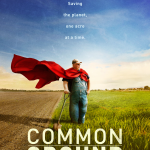A cranky history teacher at a remote prep school is forced to remain on campus over the holidays with a troubled student who has no place to go.
Chucks says:
Sorrow and regret are what bind Paul Hunham, Mary Lamb, and Angus Tully, sorrow over the death of loved ones and cherished dreams, regret over missed opportunities and unspoken feelings. To their credit, they carry their pain well, functioning in their jobs and getting through the day, though their hurt does break through their resolve at times, lashing out in anger or dissolving in tears. That they are able to get out of bed and face the day each morning is no small feat.
These three characters are at the center of Alexander Payne’s “The Holdovers,” a bittersweet look at individual battles endured during a time of great turmoil. Sly in its humor and sincere, though obvious, in its poignancy, human dramas of this sort have become increasingly rare, in the superhero era of cinema. As such, the film may seem better than it actually is, yet it’s hard to overlook the power of its three central performances and the craft with which it is made.
Taking place in 1970, Barton Prep Academy is a private New England school where blueblood families and others of their ilk send their high school age boys. To be sure, the education they receive is of the highest quality but it’s the social arena they each must combat that prepares them for the outside world. Tully (Dominic Sessa) is dedicated to his studies and feels he’s earned the vacation his mother has promised him over winter break. So, it’s particularly hurtful when she calls at the last minute to say she will not be picking him up, choosing to spend time with her new husband instead.
Making matters worse is that Professor Hunham (Paul Giamatti) has been assigned to mind Tully and four other who have nowhere to go for the holidays. Cutting and impatient, he is not a favorite among the students, his resentment towards them and their privilege, obvious. The tension between Tully and Hunham only grows when the other students are able to leave campus – via a labored deus ex machina device – and the two are left to their own devices for two weeks. Thankfully, Mary (Da’Vine Joy Randolph), the head of the kitchen, is around to prepare their meals and act as a buffer.
Barriers between the three disappear as they spend time together; secrets are told, hearts are bared, and bonds are forged. The story progresses with few surprises, but the three principals are very good, conveying their characters pain with a sincerity that’s genuinely moving. As written by David Hemingson, these are roles that actors crave, not so much for the grandstanding moments given to them but the quieter scenes in which subtlety is required.
It’s no surprise that Giamatti excels here; one of the finest actors of our generation, he brings a deft touch to this part that makes Hunham far more than just a bitter crank. Randolph, the secret weapon in each movie she’s in, runs with a far meatier part than she’s usually given, while Sessa is a revelation, equally effective as these two veterans in his first film role. This trio elevates the material, making us care for these damaged souls despite a sense of the familiar that creeps in as the film progresses.
While Payne makes this in the visual style of 1970’s American films, it ultimately lacks the narrative heft of features from that last revolutionary cinematic period. Still, “The Holdovers” proves worthwhile as a reminder that so many among us struggle with pain we cannot see and how powerful a kind word or gesture can be.
3.5/4 Stars




